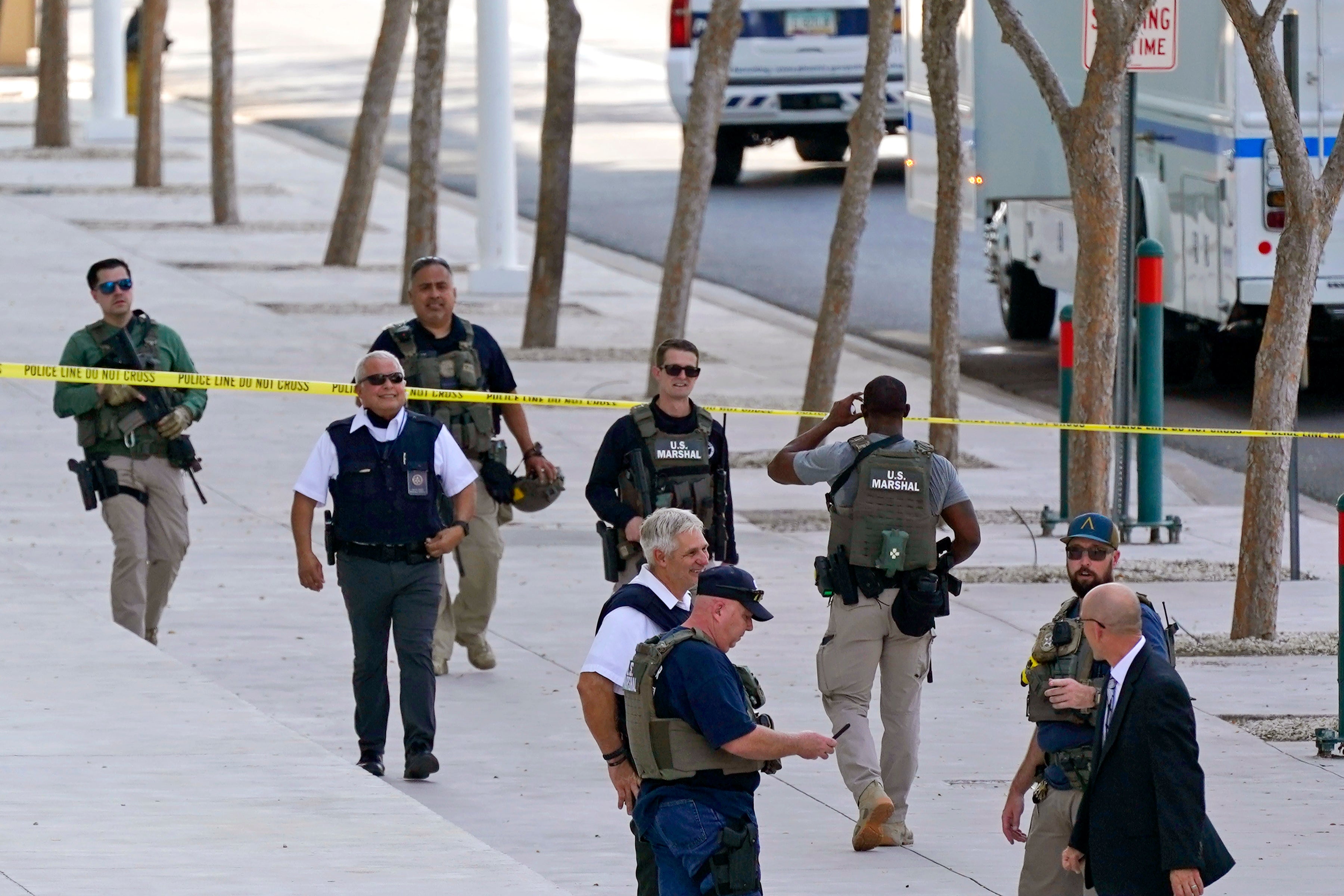US judiciary seeks to boost judges’ security at home, work
The federal judiciary says it needs to boost security for judges at home and work following a deadly shooting at a judge’s home last summer, protests that damaged more than 50 courthouses around the country last year and the Jan 6

Your support helps us to tell the story
From reproductive rights to climate change to Big Tech, The Independent is on the ground when the story is developing. Whether it's investigating the financials of Elon Musk's pro-Trump PAC or producing our latest documentary, 'The A Word', which shines a light on the American women fighting for reproductive rights, we know how important it is to parse out the facts from the messaging.
At such a critical moment in US history, we need reporters on the ground. Your donation allows us to keep sending journalists to speak to both sides of the story.
The Independent is trusted by Americans across the entire political spectrum. And unlike many other quality news outlets, we choose not to lock Americans out of our reporting and analysis with paywalls. We believe quality journalism should be available to everyone, paid for by those who can afford it.
Your support makes all the difference.The federal judiciary says it needs to boost security for judges at home and work following a deadly shooting at a judge's home last summer, protests that damaged more than 50 courthouses around the country last year and the Jan 6. assault on the U.S. Capitol.
All federal judges are being offered upgrades, including video monitoring, of "antiquated'' home security systems, U.S. District Judge Claire Eagan of Oklahoma said Tuesday after a meeting of the Judicial Conference, the policy-making arm of the federal courts.
“This matter became very real for judges last summer,” said Eagan, who heads the judiciary's executive committee.
In July, a lawyer showed up at the New Jersey home of U.S. District Judge Esther Salas dressed as a FedEx delivery person and fatally shot her 20-year-old son, Daniel Anderl, and seriously wounded her husband, Mark Anderl.
The lawyer, Roy Den Hollander 72, was found dead of a self-inflicted gunshot wound the day after the ambush. Den Hollander found Salas' home address online.
The judiciary also is backing legislation named for Salas’ son that would make it easier to shield judges’ personal information from the public. It failed to pass the Senate in December, but is expected to be reintroduced this year.
The AP has previously reported that when Den Hollander was found dead he had a document with him with information about a dozen female judges from across the country, half of whom are Latina, including Salas. Justice Sonia Sotomayor was among the judges being tracked, Salas said in an interview with CBS News’ “60 Minutes” in February.
Federal judges also are asking Congress for an extra $390 million for courthouse security enhancements. Some of that money would be used to "harden entrances and first-floor windows of courthouses nationwide to prevent them from being overrun,” Eagan said, alluding to the attack on the Capitol.
The request also includes money to deal with increasing threats against federal judges, “including threats tied to the pending criminal cases associated with the January 6, 2021 attack on the U.S. Capitol,” according to a summary of the money requests provided by the courts.
Separately, the Judicial Conference also is calling for adding 77 district court judgeships nationwide and two seats on the 9th U.S. Circuit Court of Appeals in the western U.S.
The last comprehensive expansion of the judiciary was in 1990, and there appears to be bipartisan congressional support for adding judgeships.